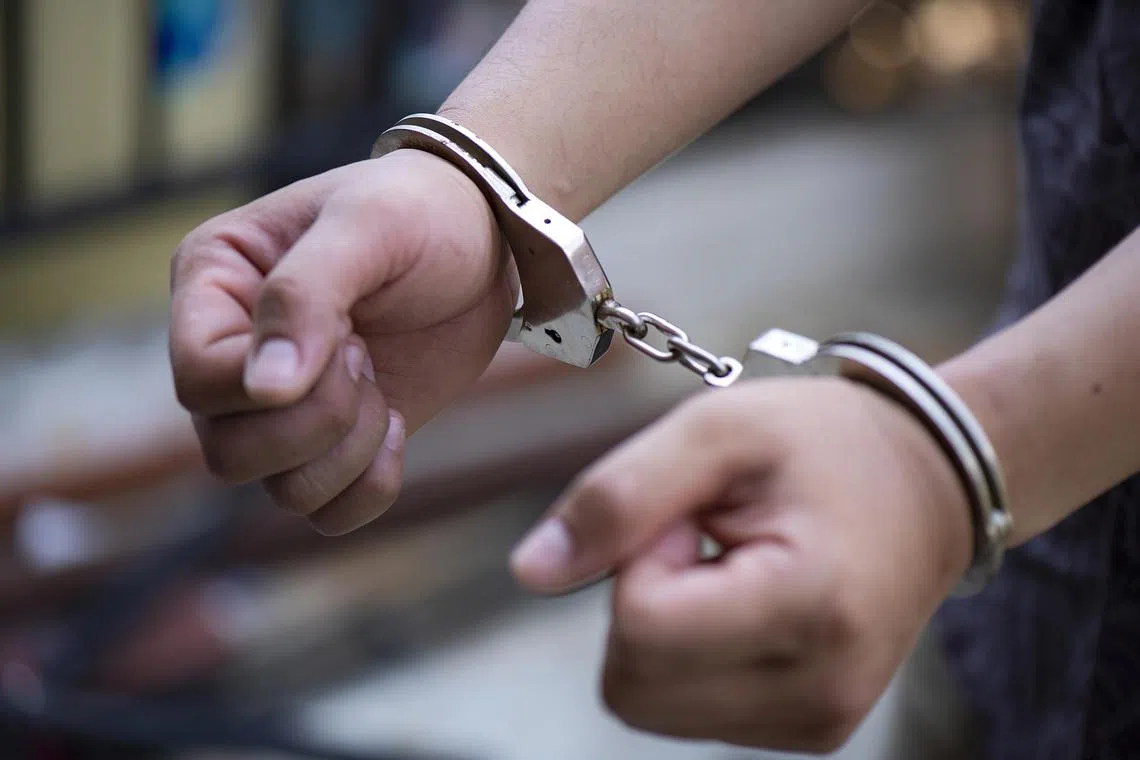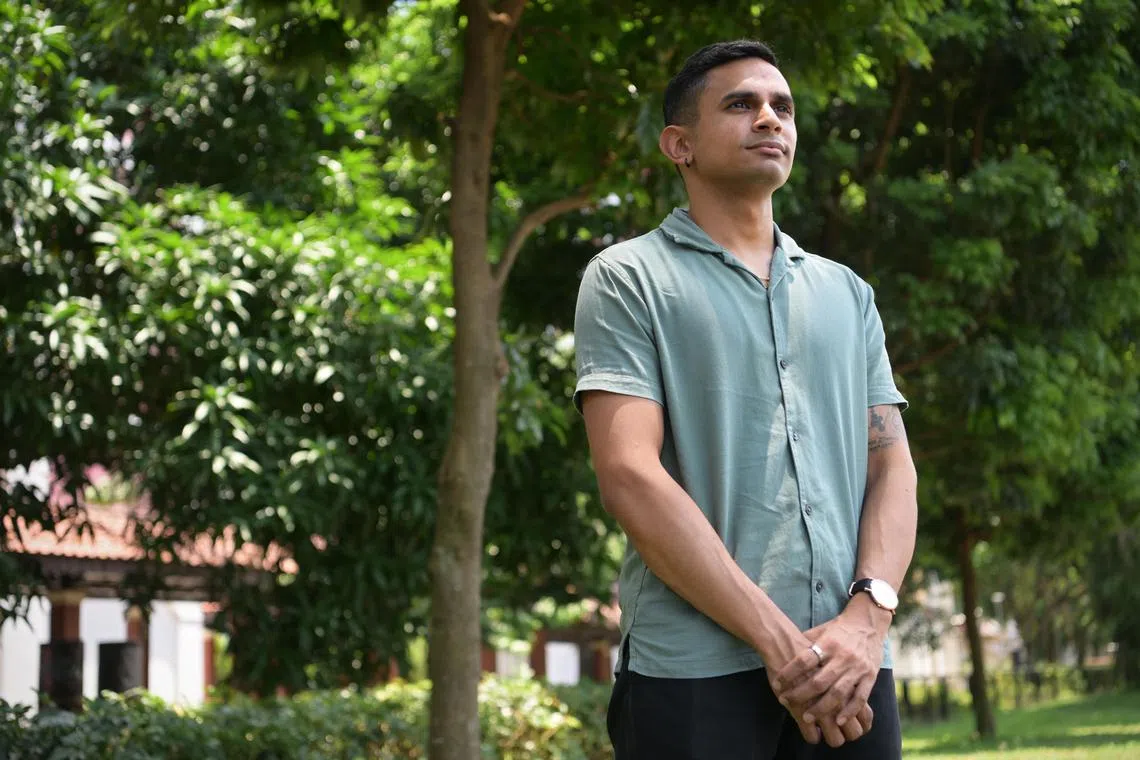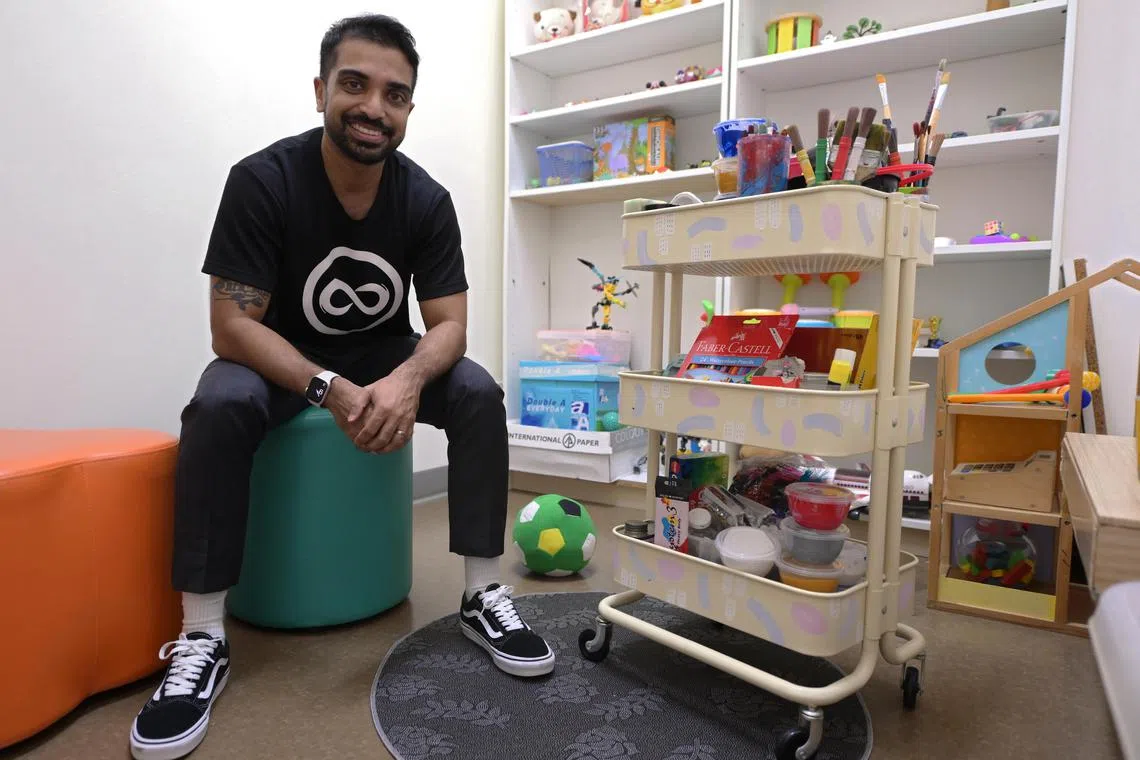Over 2,000 young offenders completed rehab programmes in past 5 years and avoided being charged
Sign up now: Get ST's newsletters delivered to your inbox

Rehabilitation programmes for young offenders are run by 10 social service agencies that were appointed as integrated service providers.
PHOTO: ISTOCKPHOTO
SINGAPORE - More than 2,000 young offenders have completed rehabilitative programmes in the past five years, allowing them to avoid being charged in court.
One such programme is the six-month Guidance Programme, which helps youth aged 10 to 18 who have been arrested for minor offences such as theft, fighting and lower-risk sexual offences.
This sees a case worker counselling youth in individual, group and family sessions on solving problems, forming healthy relationships and managing their emotions.
Rehabilitation programmes for young offenders are run by 10 social service agencies appointed as Integrated Service Providers (ISPs) in 2018 by the Ministry of Social and Family Development (MSF).
Over 94 per cent of those enrolled completed the Guidance Programme in 2022, the highest completion rate since 2018.
And 94 per cent of those who completed the programme in 2018 stayed out of trouble for three years after the programme, up from the 92.4 per cent average for the 2015 to 2017 cohorts.
There are now 10 ISPs islandwide running the MSF-funded programmes for young offenders below the age of 21.
The police refer the youth to the Guidance Programme, which may be extended up to a year.
They also run specialised programmes such as the Youth Enhanced Supervision (YES) scheme for drug offenders and the Enhanced Streetwise Programme for those who have committed minor gang-related offences.
MSF said it will study the potential to have ISPs work with more categories of young offenders who could benefit from these interventions.
One youth, Ryan (not his real name), told The Straits Times he stole a bike to get home one night in 2020 when public transport had stopped operating.
The 19-year-old said he did not have a good relationship with his father and sister, and got agitated when his parents argued.
“I felt I did not have control over my life. I gave in to the negative thoughts in my head. And I also didn’t really have anyone to talk to at home.”
He was glad to find a confidant in his case worker in the Guidance Programme at Shine Children and Youth Services in Clementi.
Ryan’s case worker taught him to fight his negative thoughts with positive thoughts, even while he is arguing with his sister. “I try to stay calm because I don’t want to destroy my relationship with my sister,” he said.
Another youth, Darren (not his real name), 16, was sent to the Guidance Programme at Fei Yue Community Services for taking an unattended bicycle on a joyride in 2022.
He took a while to adjust to the 9pm curfew and open up to his case worker, but once he did, they built a close relationship.
Mr Aaron Scott Donovan, who is Darren’s case worker, said he realised that relationships were important to Darren. But this translated to Darren hanging out till late with his friends, whom his parents disapproved of.

Mr Aaron Scott Donovan, from Fei Yue Community Services, has 10 years of experience in working with youth with minor offending behaviours such as theft and gang-related issues.
ST PHOTO: NG SOR LUAN
He spoke to Darren’s parents. “I realised that both parties shared the hope of improving the relationship and becoming closer. But they didn’t know how they could achieve it.”
He sat the family down for counselling sessions and created opportunities for them to bond through boat-fishing and board games.
Darren now spends more time with his family, and informs his parents when he is out with friends, not wanting them to worry. “One big motivating factor for me was knowing that my parents and Mr Aaron wanted me to change for the better and to make them proud. Because they truly believe that I can succeed in life. So I don’t want to prove them wrong.”
Darren, who hopes to pursue a career in automotive engineering, said he wanted to succeed so that his parents can retire and “have a good life”.
Mr Vidyakeeshan, assistant head of youth services at AMKFSC Community Services, said some youth do not see the point in the programme, and some parents resist being roped in as well.

Mr Vidyakeeshan, assistant head of youth services at AMKFSC Community Services, has nine years of experience in working with youths.
ST PHOTO: NG SOR LUAN
“For a case worker to help somebody, they must want to be helped. So when they don’t see the need for it, it is very difficult to make headway in supporting them through a change process.”
Mr Vidyakeeshan, who has been working with youth for nine years, tries to find out what led them to commit the crime. He found that many young substance users tried drugs out of curiosity.
“Young people are at a developmental stage where they are pushing boundaries, and they are trying to rebel and find new ways of expressing themselves. So my role is to come in and allow them that space while providing healthy boundaries,” he said.
Case workers also noted the need to strike a balance between being firm and being caring to the youth. “If we give them that space and time to share their thought processes behind why they would not follow the rules, then they will eventually feel heard and understood,” said Mr Donovan.
“It comes down to letting them know we are not here just to scold them or provide them with this rigid structure. But we are here to really understand them and see how we can help them to gear towards something that they also eventually want – to become better people.”
Correction note: In an earlier version of the story, we said that the Guidance Programme helps youth who have been arrested for minor offences such as theft, fighting, lower-risk sexual offences and first-time drug abuse. This is incorrect. The programme is not for first-time drug offenders. We are sorry for the error.


